He was a constant at the India International Centre (IIC), a quiet presence reading in a corner, or studiously writing away in another.
NEW DELHI: He was a constant at the India International Centre (IIC), a quiet presence reading in a corner, or studiously writing away in another.
Ramachandra Gandhi, philosopher and grandson of Mahatma Gandhi and C. Rajagopalachari, on Wednesday passed away in his beloved IIC, the intellectual bastion of the capital he lent so much gravitas to.
The 70-year-old Ramachandra Gandhi was at heart a philosopher beyond narrow academic classifications while equally rooted to the soil.
Having earned doctorates in linguistics - he studied with the legendary H.P. Grice - and philosophy, he taught at universities in Britain and the US and in India at Santiniketan, founded by Rabindranath Tagore, Panjab University and Bangalore University. He, in fact, founded the philosophy department at Hyderabad University.
As a teacher, he used to say that three R's of education should be replaced by three E's - Ethics, Ecology and Enlightenment.
Even as he left an indelible impression on a generation of students and teachers, Ramachandra Gandhi - or Ramubhai as he was affectionately known by all - was anything but a straitjacketed academic.
He was at home with Indian philosophy as much as with western contemporary thoughts, but his chief interest was in the Hindu system of thought known as Advaita Vedanta or non-duality.
In 'Moksha and martyrdom: reflections on Ramana Maharshi and Mahatma Gandhi', Ramubhai juxtaposed the two 20th centuries icons - Gandhi, the political leader who inspired non-violent revolutions around the globe, and Ramana Maharshi, who revived the Advaita tradition of Adi Shankaracharya in modern times.
And, just like the Mahatma, his spiritual quest was never divorced from the 'responsibility to the other', and he remained engaged in efforts towards social questions.
In the late 1980s and early 1990s, as the Hindu rightwing campaigned for destroying the 16th Babri Masjid and building a Ram temple in the belief that the Hindu lord was born there, Ramachandra Gandhi used his close reading of Hindu epics for a counterargument.
Inspired by an incident from Ramayana on the life of Lord Ram, 'Sita's Kitchen: A Testimony of Faith and Inquiry' was a terse reply to the Hindu rightwing, using the same mythology as it did.
The same method was at work when Ramubhai responded to the 2002 communal violence in 'Gandhi's Gujarat', in which 1,169 people, a majority of them from the minority Muslims community, were killed.
Drawing lessons once again from another Hindu epic, Mahabharata, Ramachandra Gandhi reminded us of Gandhari's curse to Lord Krishna after the Kuru clan was wiped out: "Your people will also kill themselves in fratricidal frenzy!"
His politics, however, was one of a critic in the public sphere. For a man who was grandson of not only the father of the nation but also of independent India's second governor-general, Ramachandra Gandhi was remarkably free of any ambitions to any political position.
His intellectual journey also took him to the world of art and in recent years he penned two magnificent volumes on art criticism. 'Svaraj: A Journey with Tyeb Mehta' is an extended essay on the famous painter's triptych on Santiniketan - which incidentally fetched a record price in the market. Ramchandra Gandhi made it a starting point for his meditations on swaraj, or self-rule, a political concept that coloured India's freedom struggle.
For the Vedanti that he was, the concept went beyond politics and led to a spiritual journey within one's self.
Another foray into art criticism was 'Ideas Images Exchanges', co-authored with critics Ranjit Hoskote and Roshan Shahani.
In recent years, he had also started offering weekend workshops in New Delhi on synthesising politics, culture and spiritualism - and thus extending the history-making work of the Mahatm
![submenu-img]() DNA Explainer: Why was Iranian president Ebrahim Raisi, killed in helicopter crash, regarded as ‘Butcher of Tehran’?
DNA Explainer: Why was Iranian president Ebrahim Raisi, killed in helicopter crash, regarded as ‘Butcher of Tehran’?![submenu-img]() 1 dead, many injured after London-Singapore flight hit by severe...
1 dead, many injured after London-Singapore flight hit by severe...![submenu-img]() This film was based on iconic love story, actors and director died midway, was released incomplete 23 years later
This film was based on iconic love story, actors and director died midway, was released incomplete 23 years later![submenu-img]() Meet man who used to go medicine factory in childhood, now runs Rs 109000 crore pharma company, his net worth is...
Meet man who used to go medicine factory in childhood, now runs Rs 109000 crore pharma company, his net worth is...![submenu-img]() Akshay Kumar 'accidently' collided with RTO officer's bike in Bangkok, shares what happened next: 'I immediately...'
Akshay Kumar 'accidently' collided with RTO officer's bike in Bangkok, shares what happened next: 'I immediately...' ![submenu-img]() Maharashtra HSC 12th 2024: Result declared, know how to check
Maharashtra HSC 12th 2024: Result declared, know how to check![submenu-img]() Meet man who topped IIT-JEE, studied at IIT Bombay, then went to MIT, now is...
Meet man who topped IIT-JEE, studied at IIT Bombay, then went to MIT, now is...![submenu-img]() Meet man who once used to sell newspapers at 9, cracked UPSC exam, he is now…
Meet man who once used to sell newspapers at 9, cracked UPSC exam, he is now…![submenu-img]() Meet woman who secured high-paying job, not from IIT, IIM, VIT, her record-breaking package is...
Meet woman who secured high-paying job, not from IIT, IIM, VIT, her record-breaking package is...![submenu-img]() Maharashtra HSC Result 2024: Class 12th result to be released today, know time, steps to check
Maharashtra HSC Result 2024: Class 12th result to be released today, know time, steps to check![submenu-img]() DNA Verified: Is CAA an anti-Muslim law? Centre terms news report as 'misleading'
DNA Verified: Is CAA an anti-Muslim law? Centre terms news report as 'misleading'![submenu-img]() DNA Verified: Lok Sabha Elections 2024 to be held on April 19? Know truth behind viral message
DNA Verified: Lok Sabha Elections 2024 to be held on April 19? Know truth behind viral message![submenu-img]() DNA Verified: Modi govt giving students free laptops under 'One Student One Laptop' scheme? Know truth here
DNA Verified: Modi govt giving students free laptops under 'One Student One Laptop' scheme? Know truth here![submenu-img]() DNA Verified: Shah Rukh Khan denies reports of his role in release of India's naval officers from Qatar
DNA Verified: Shah Rukh Khan denies reports of his role in release of India's naval officers from Qatar![submenu-img]() DNA Verified: Is govt providing Rs 1.6 lakh benefit to girls under PM Ladli Laxmi Yojana? Know truth
DNA Verified: Is govt providing Rs 1.6 lakh benefit to girls under PM Ladli Laxmi Yojana? Know truth![submenu-img]() AI models show bikini style for perfect beach holiday this summer
AI models show bikini style for perfect beach holiday this summer![submenu-img]() Laapataa Ladies actress Chhaya Kadam ditches designer clothes, wears late mother's saree, nose ring on Cannes red carpet
Laapataa Ladies actress Chhaya Kadam ditches designer clothes, wears late mother's saree, nose ring on Cannes red carpet![submenu-img]() Urvashi Rautela mesmerises in blue celestial gown, her dancing fish necklace steals the limelight at Cannes 2024
Urvashi Rautela mesmerises in blue celestial gown, her dancing fish necklace steals the limelight at Cannes 2024![submenu-img]() Kiara Advani attends Women In Cinema Gala in dramatic ensemble, netizens say 'who designs these hideous dresses'
Kiara Advani attends Women In Cinema Gala in dramatic ensemble, netizens say 'who designs these hideous dresses'![submenu-img]() Influencer Diipa Büller-Khosla looks 'drop dead gorgeous' in metallic structured dress at Cannes 2024
Influencer Diipa Büller-Khosla looks 'drop dead gorgeous' in metallic structured dress at Cannes 2024![submenu-img]() DNA Explainer: Why was Iranian president Ebrahim Raisi, killed in helicopter crash, regarded as ‘Butcher of Tehran’?
DNA Explainer: Why was Iranian president Ebrahim Raisi, killed in helicopter crash, regarded as ‘Butcher of Tehran’?![submenu-img]() DNA Explainer: Why did deceased Iranian President Ebrahim Raisi wear black turban?
DNA Explainer: Why did deceased Iranian President Ebrahim Raisi wear black turban?![submenu-img]() Iran President Ebrahim Raisi's death: Will it impact gold, oil prices and stock markets?
Iran President Ebrahim Raisi's death: Will it impact gold, oil prices and stock markets?![submenu-img]() Haryana Political Crisis: Will 3 independent MLAs support withdrawal impact the present Nayab Saini led-BJP government?
Haryana Political Crisis: Will 3 independent MLAs support withdrawal impact the present Nayab Saini led-BJP government?![submenu-img]() DNA Explainer: Why Harvey Weinstein's rape conviction was overturned, will beleaguered Hollywood mogul get out of jail?
DNA Explainer: Why Harvey Weinstein's rape conviction was overturned, will beleaguered Hollywood mogul get out of jail?![submenu-img]() This film was based on iconic love story, actors and director died midway, was released incomplete 23 years later
This film was based on iconic love story, actors and director died midway, was released incomplete 23 years later![submenu-img]() Akshay Kumar 'accidently' collided with RTO officer's bike in Bangkok, shares what happened next: 'I immediately...'
Akshay Kumar 'accidently' collided with RTO officer's bike in Bangkok, shares what happened next: 'I immediately...' ![submenu-img]() Meet man, his grandfather founded political party, uncle was CM, he ditched it for Bollywood, worked for Bhansali, now..
Meet man, his grandfather founded political party, uncle was CM, he ditched it for Bollywood, worked for Bhansali, now..![submenu-img]() Meet actor who worked with SRK, Salman, Sushmita, gave many flop films, quit acting, married granddaughter of CM..
Meet actor who worked with SRK, Salman, Sushmita, gave many flop films, quit acting, married granddaughter of CM..![submenu-img]() 'Pregnant for sure': Katrina Kaif, Vicky Kaushal's viral video from London sparks pregnancy speculations
'Pregnant for sure': Katrina Kaif, Vicky Kaushal's viral video from London sparks pregnancy speculations ![submenu-img]() Viral video: Bride makes dramatic entrance from giant ice cube at snowy Alpine wedding in Switzerland
Viral video: Bride makes dramatic entrance from giant ice cube at snowy Alpine wedding in Switzerland![submenu-img]() Elephant lifts safari truck with tourists in shocking viral video, watch
Elephant lifts safari truck with tourists in shocking viral video, watch![submenu-img]() In another gaffe, Joe Biden says he was US 'Vice President' during COVID-19 pandemic, watch viral video
In another gaffe, Joe Biden says he was US 'Vice President' during COVID-19 pandemic, watch viral video![submenu-img]() Meet Nihar Thackeray, lesser-known nephew of Uddhav Thackeray, he is Eknath Shinde's...
Meet Nihar Thackeray, lesser-known nephew of Uddhav Thackeray, he is Eknath Shinde's...![submenu-img]() Heroic buffalo herd rescues one of their own from lion ambush, video is viral
Heroic buffalo herd rescues one of their own from lion ambush, video is viral

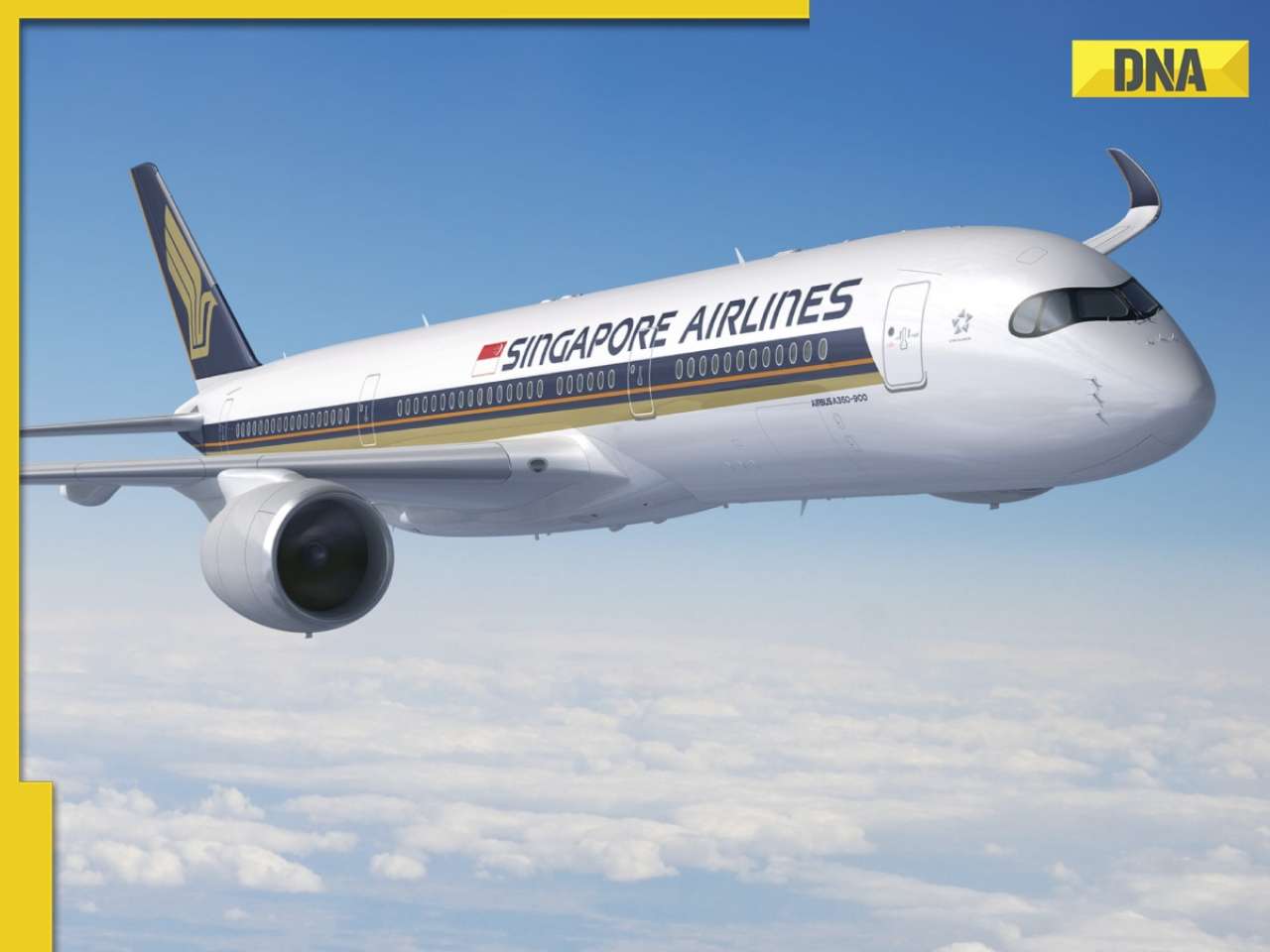
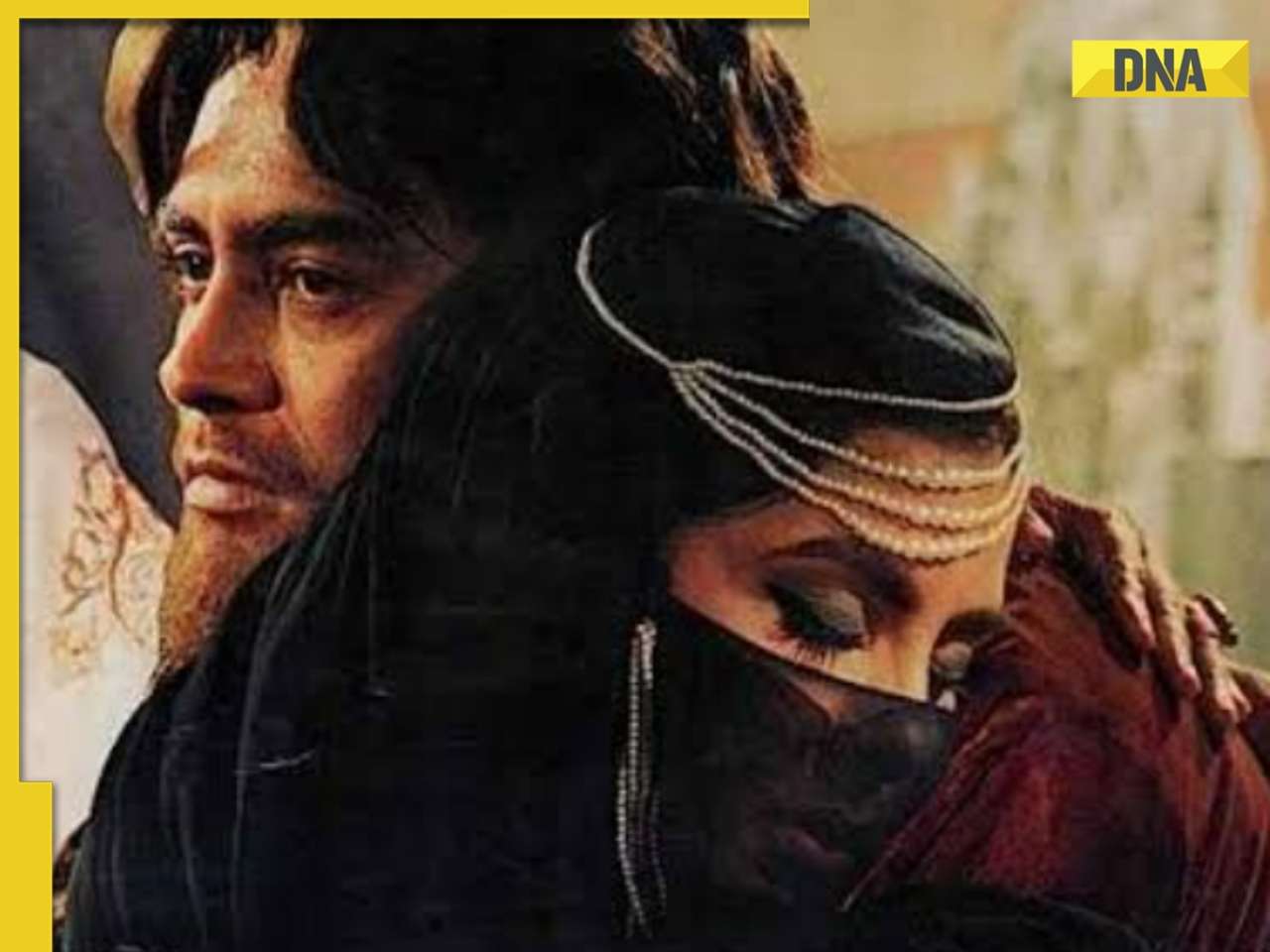
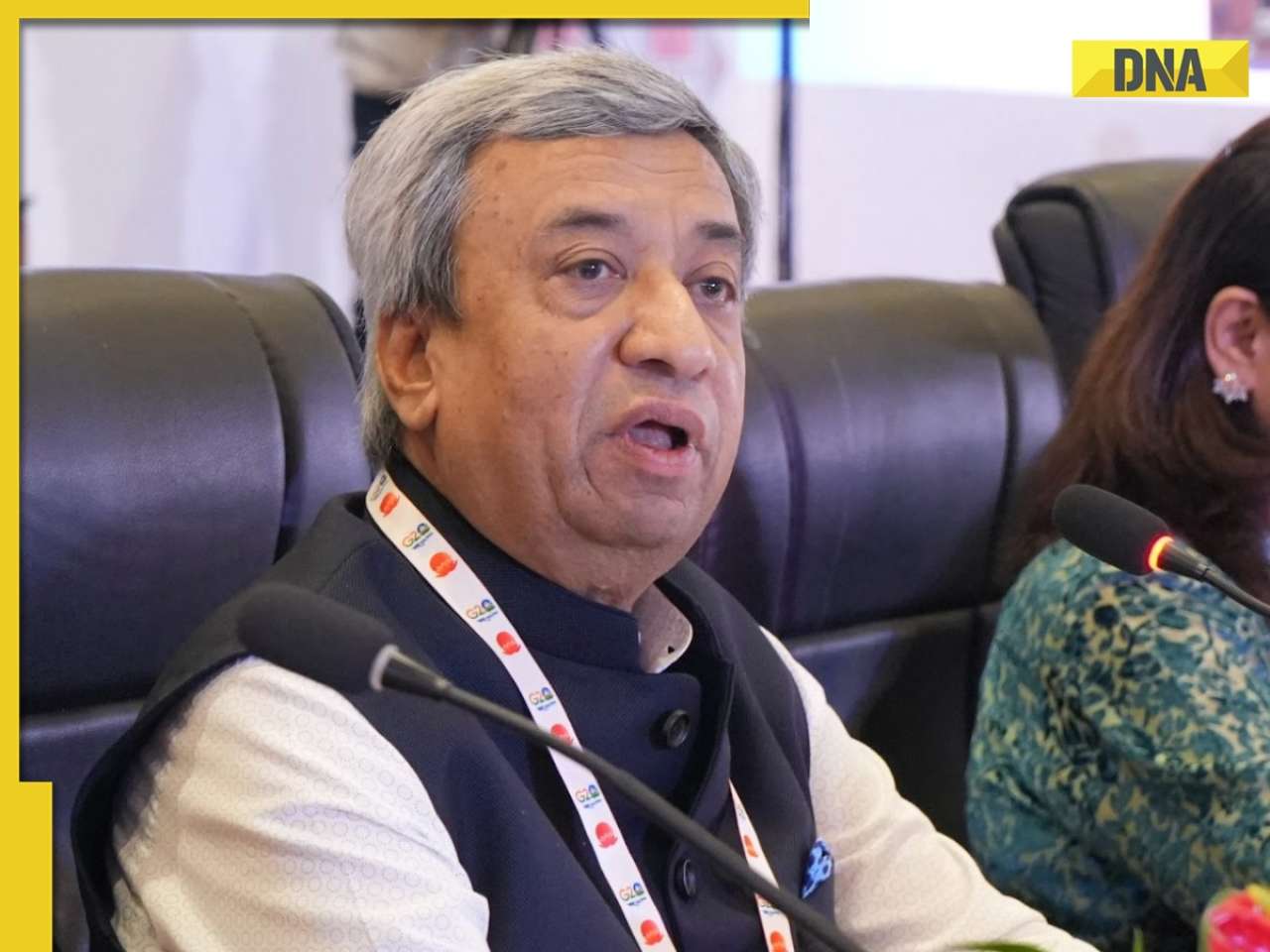
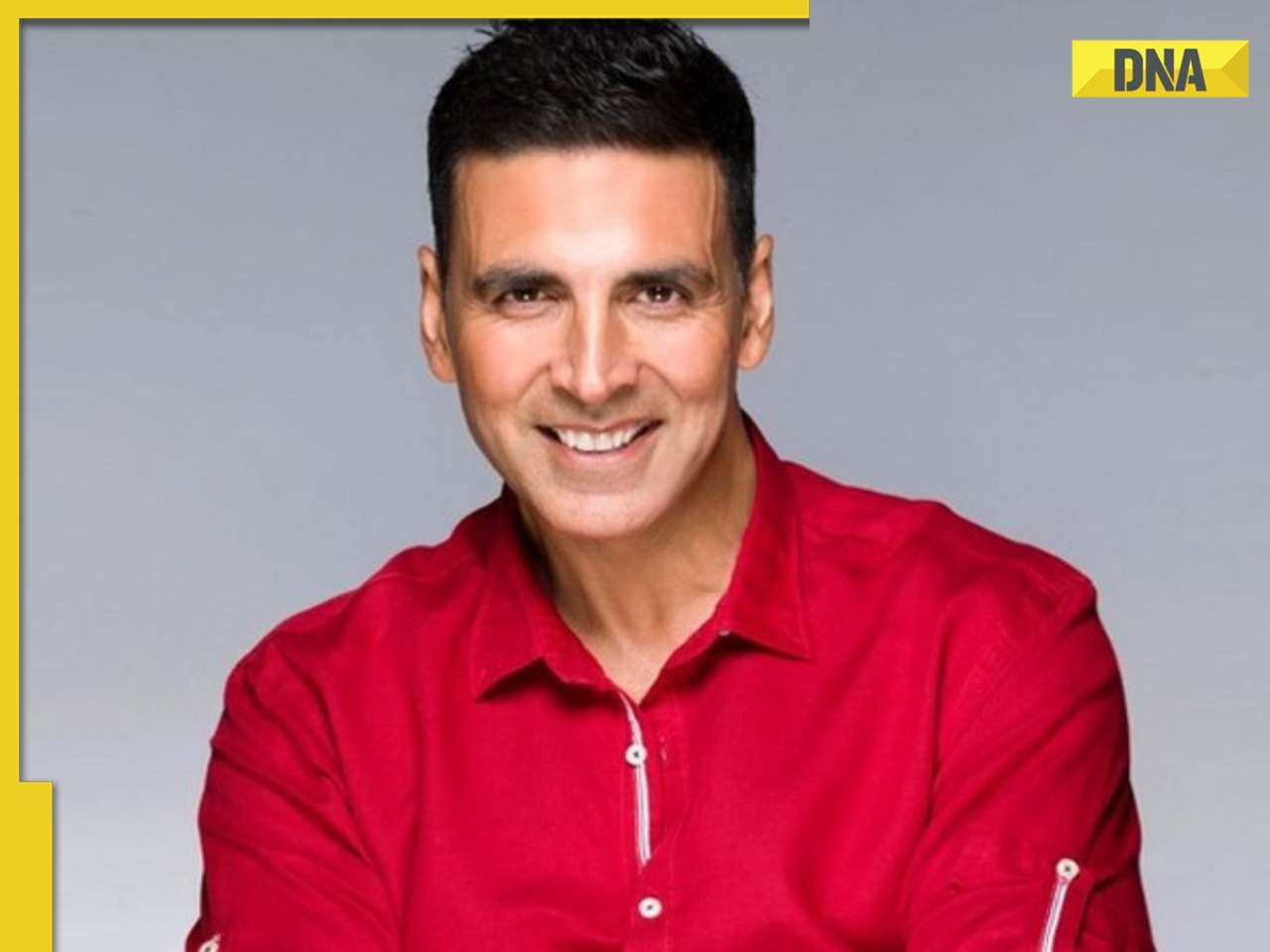



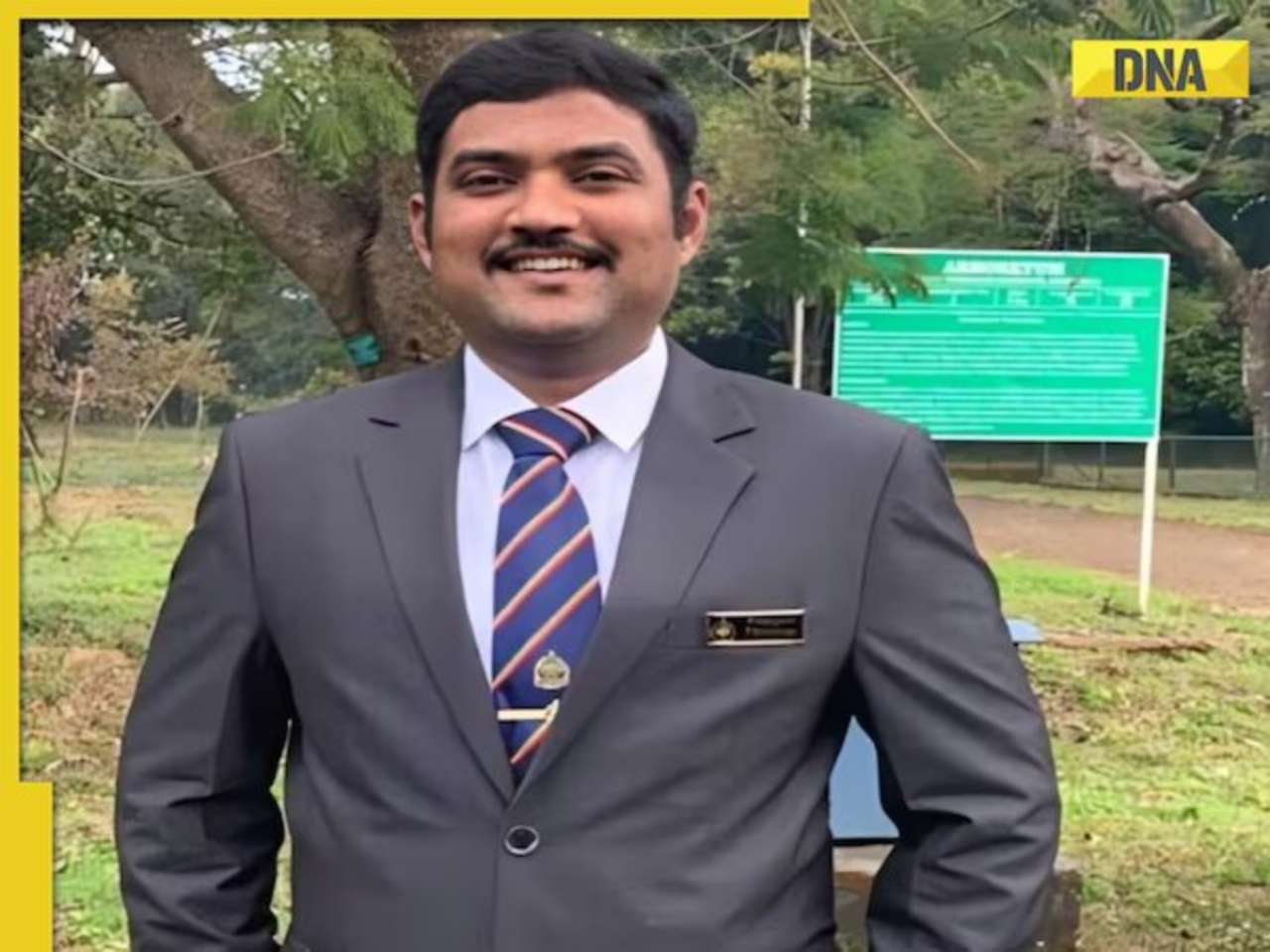
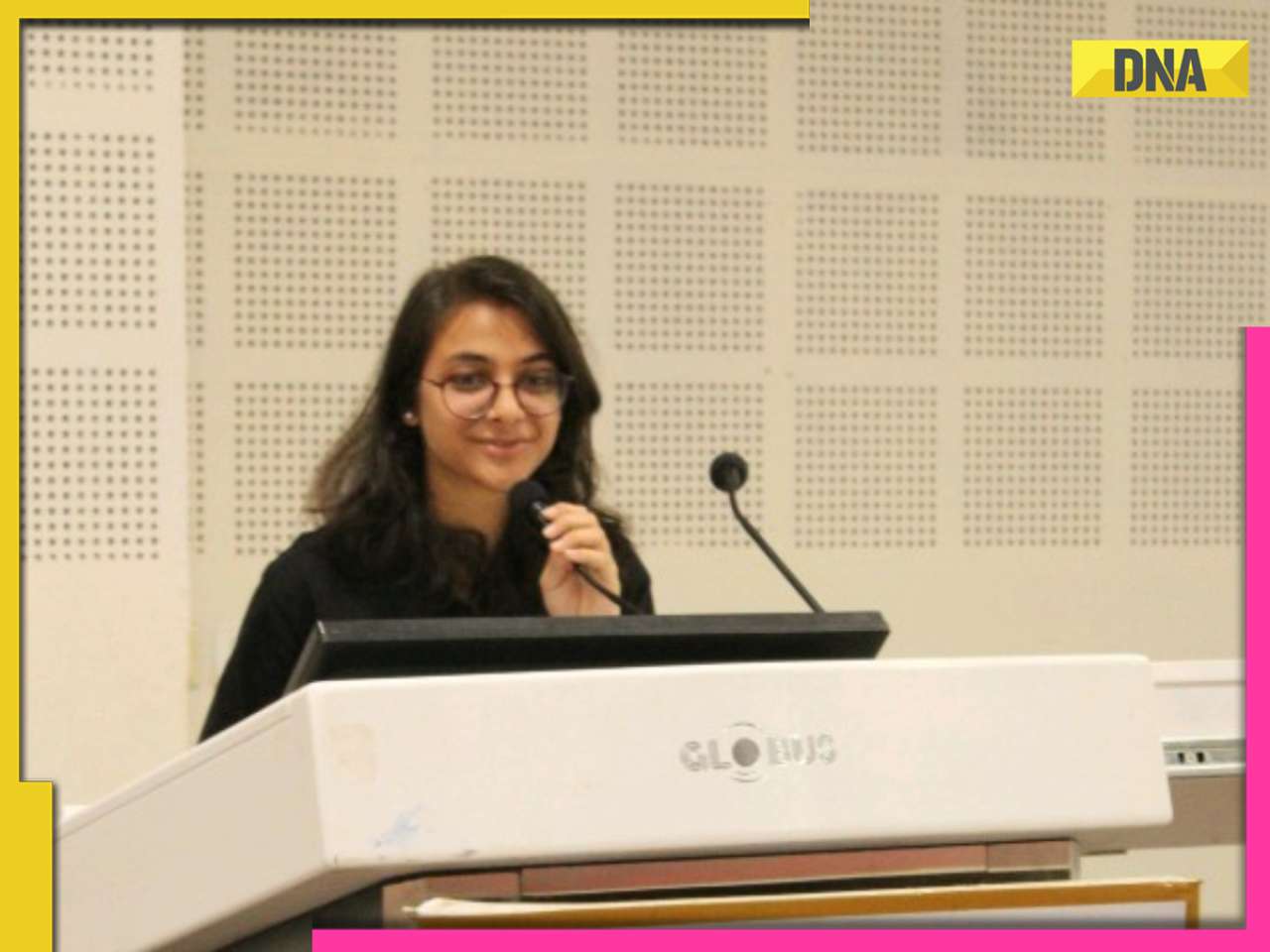
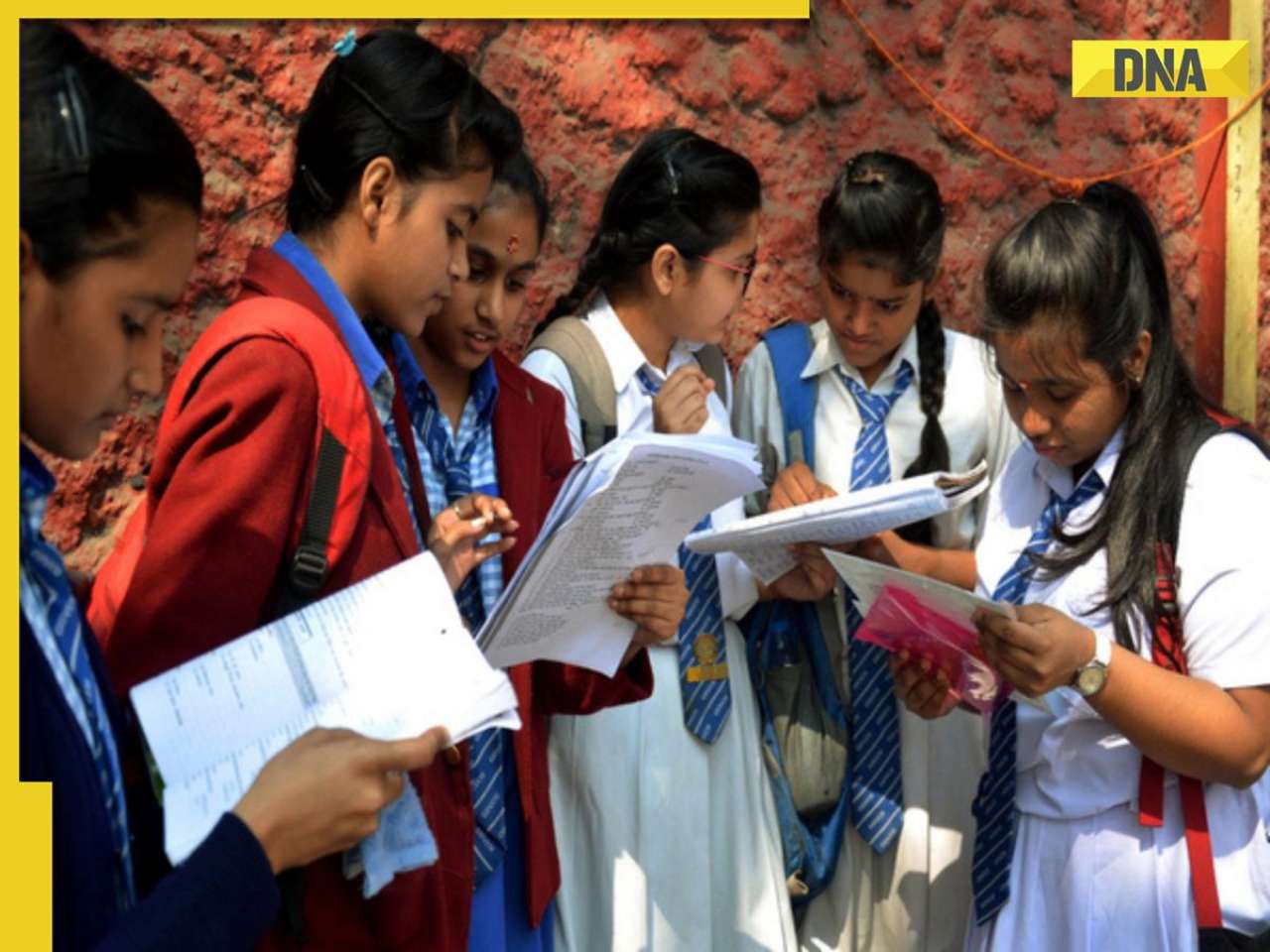















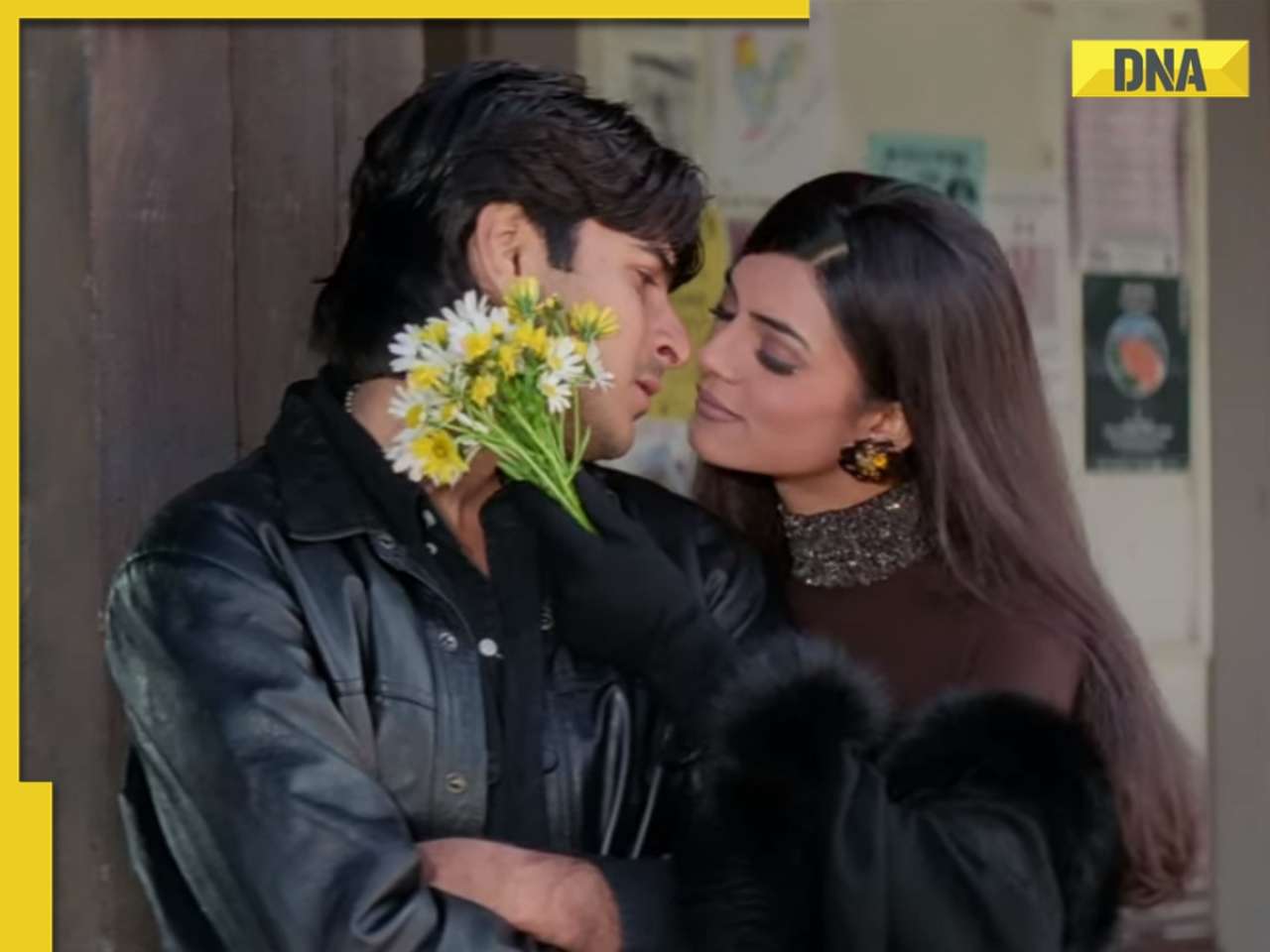




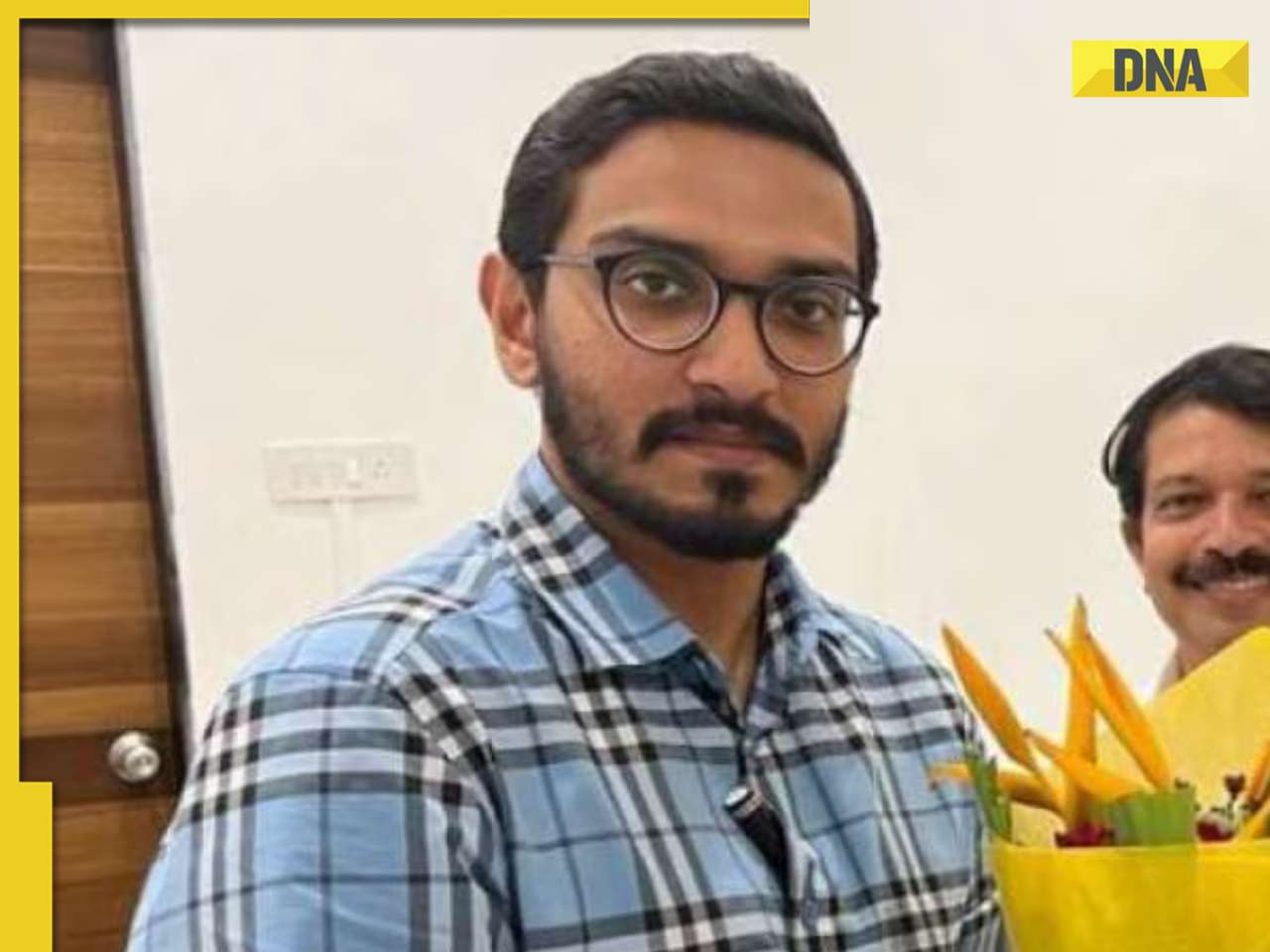





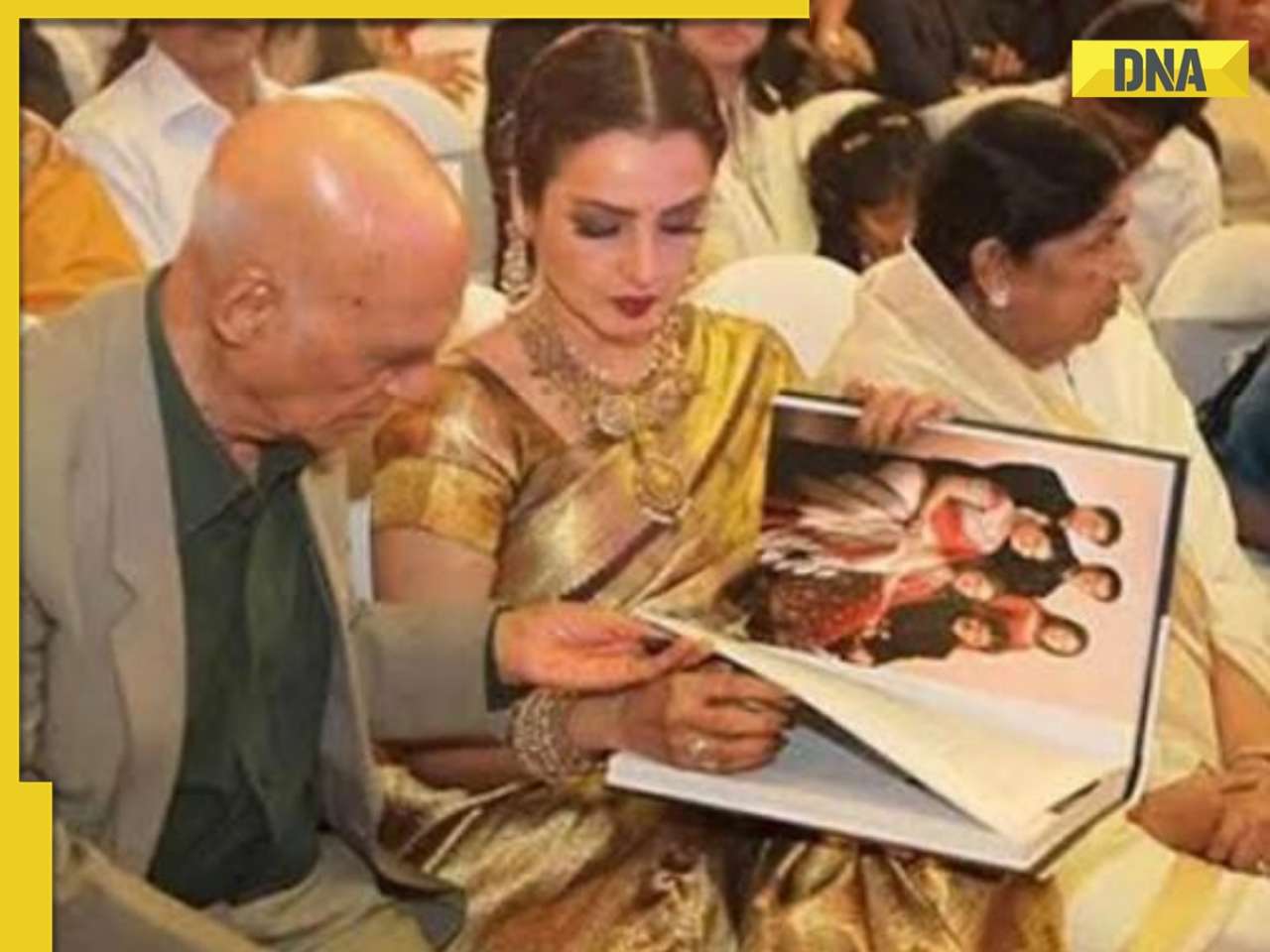














)
)
)
)
)
)